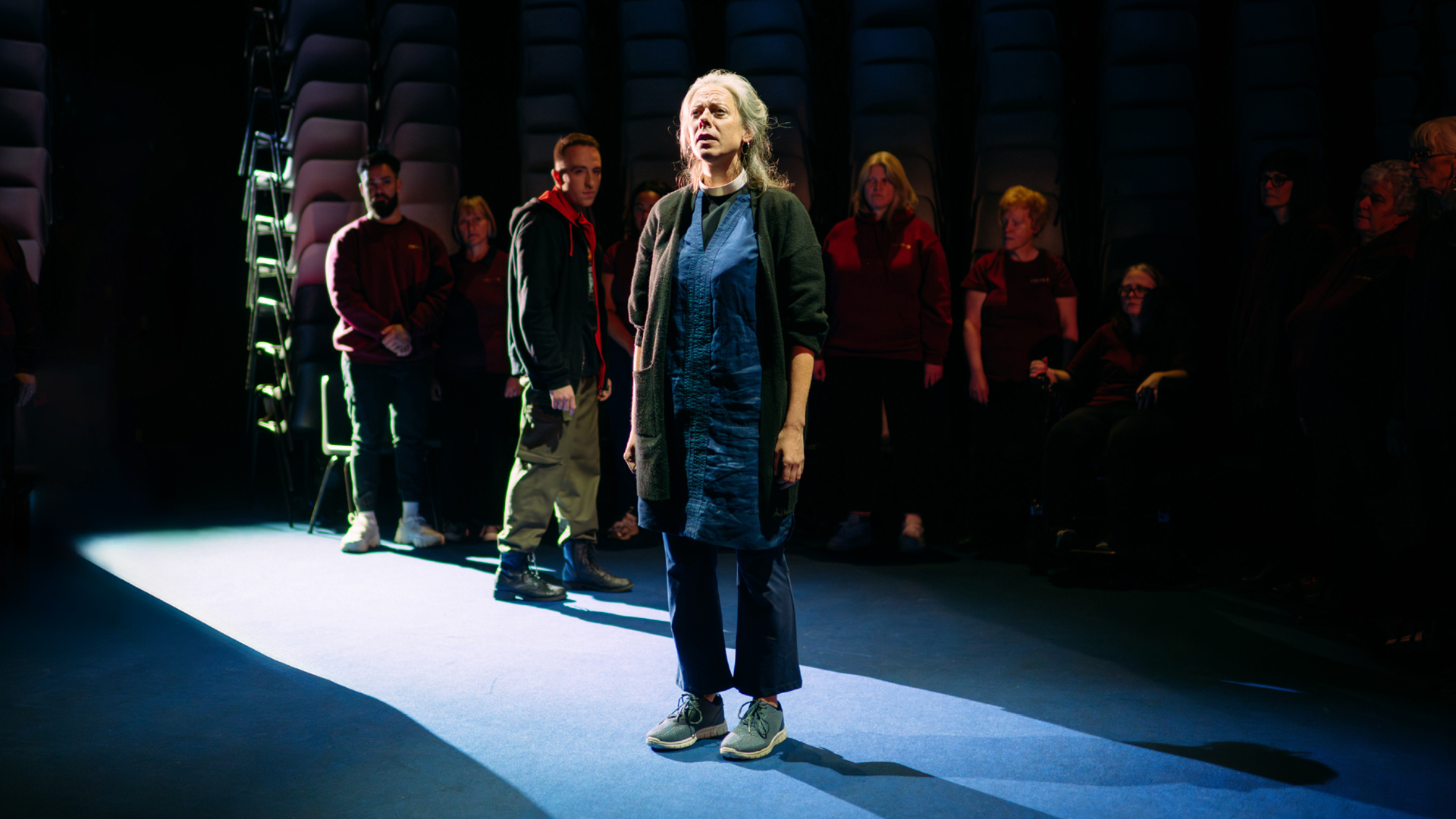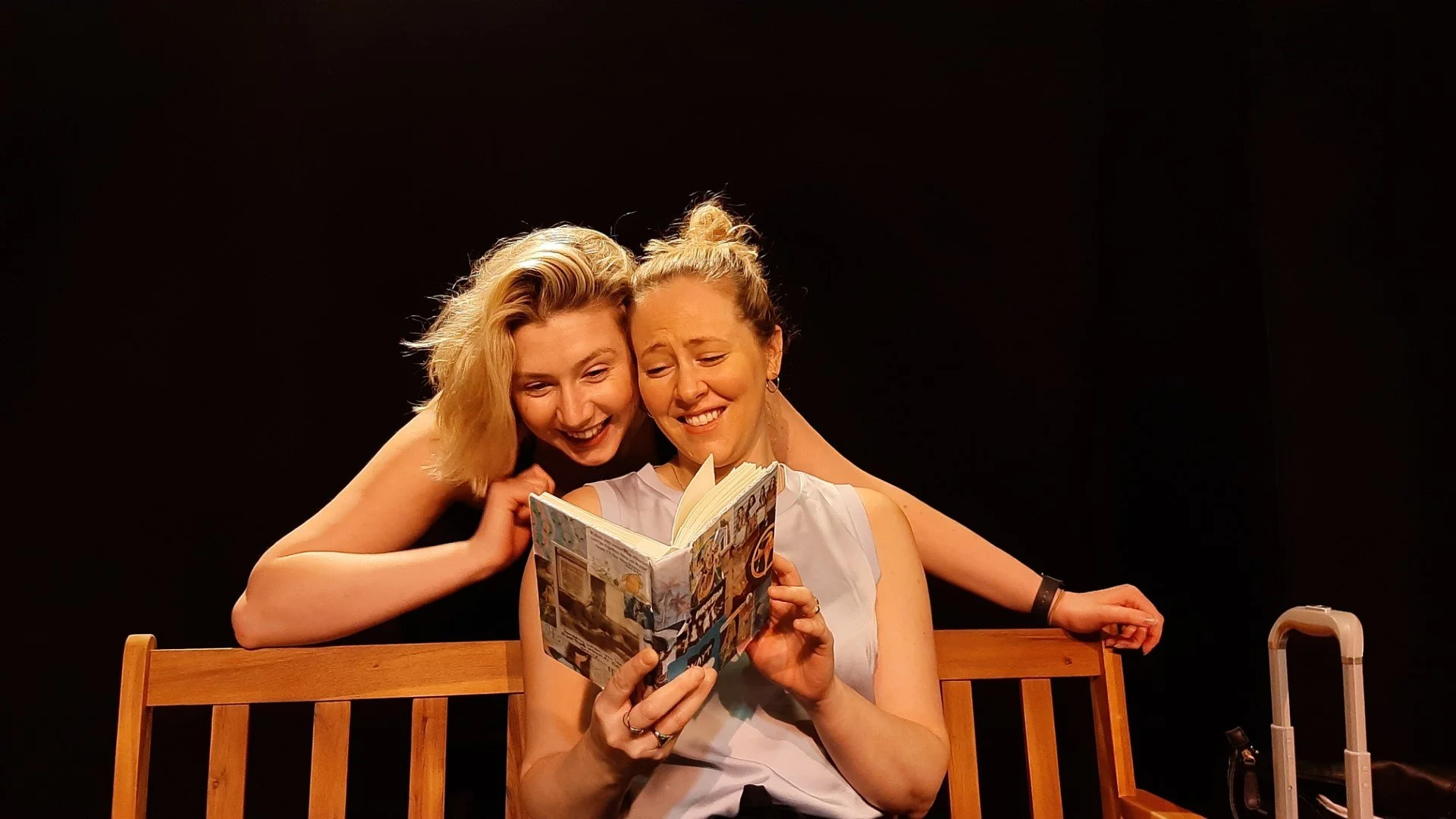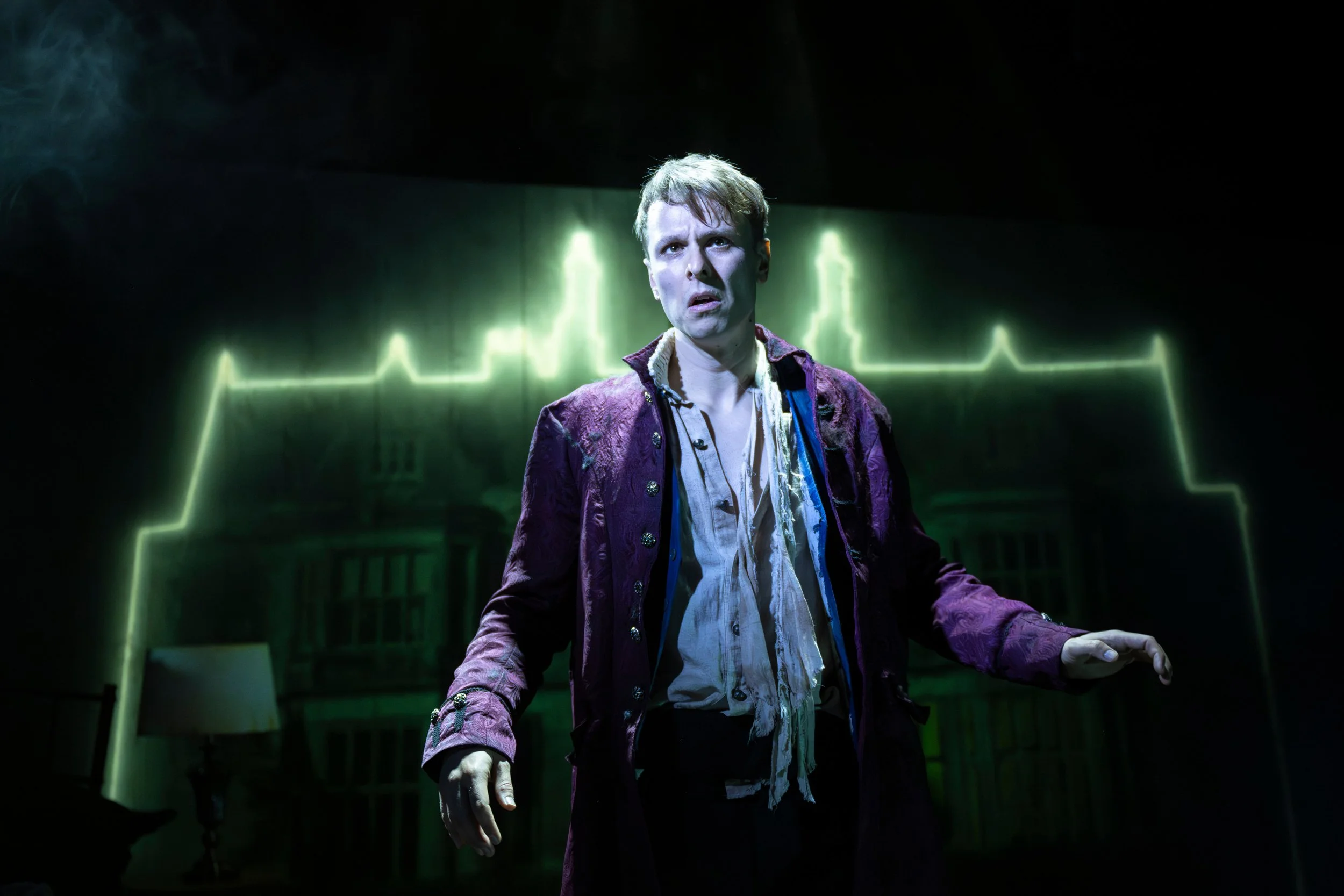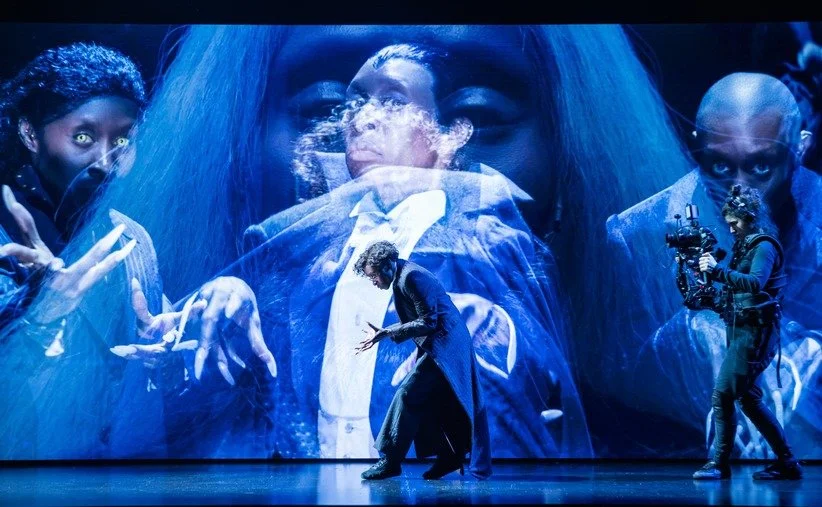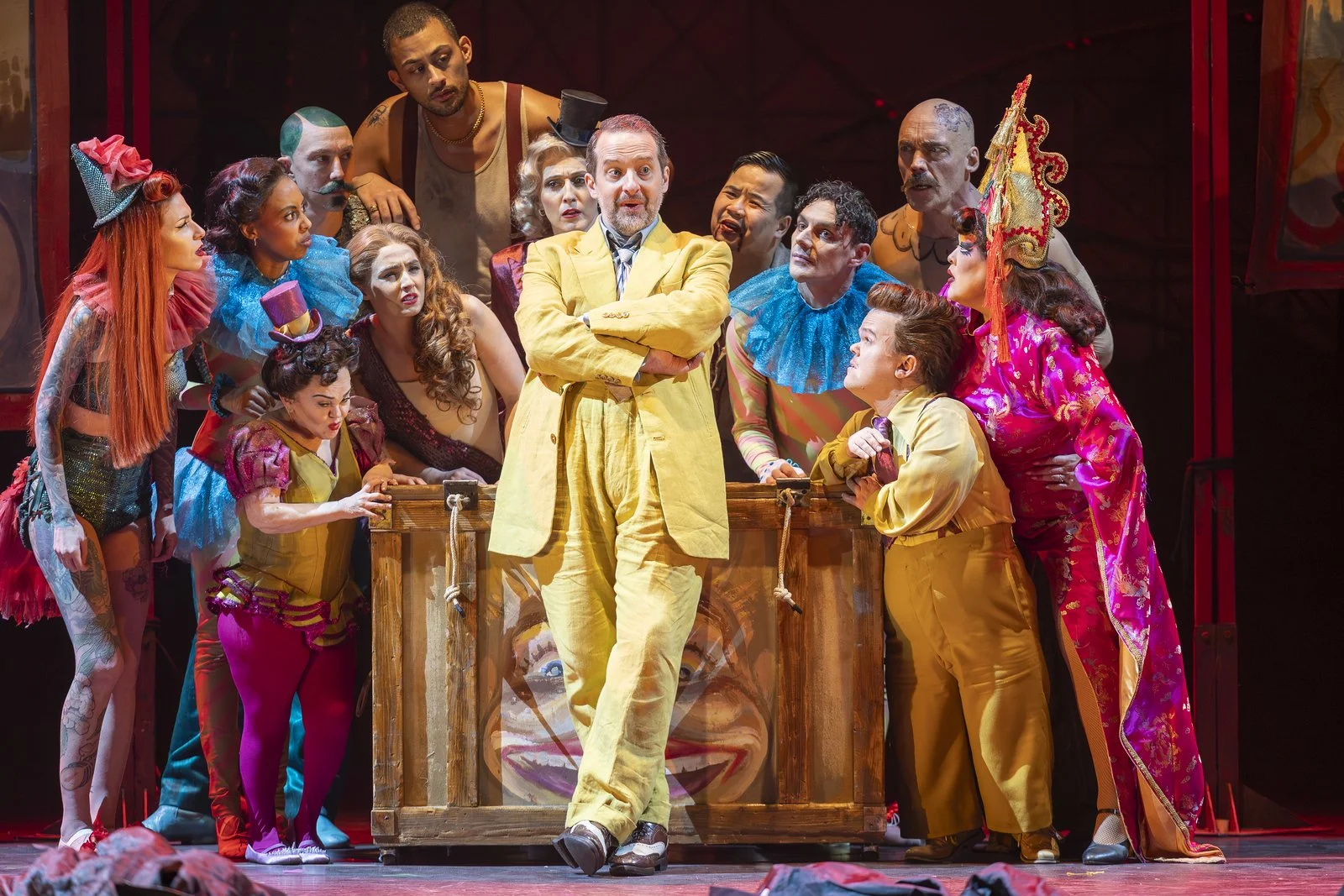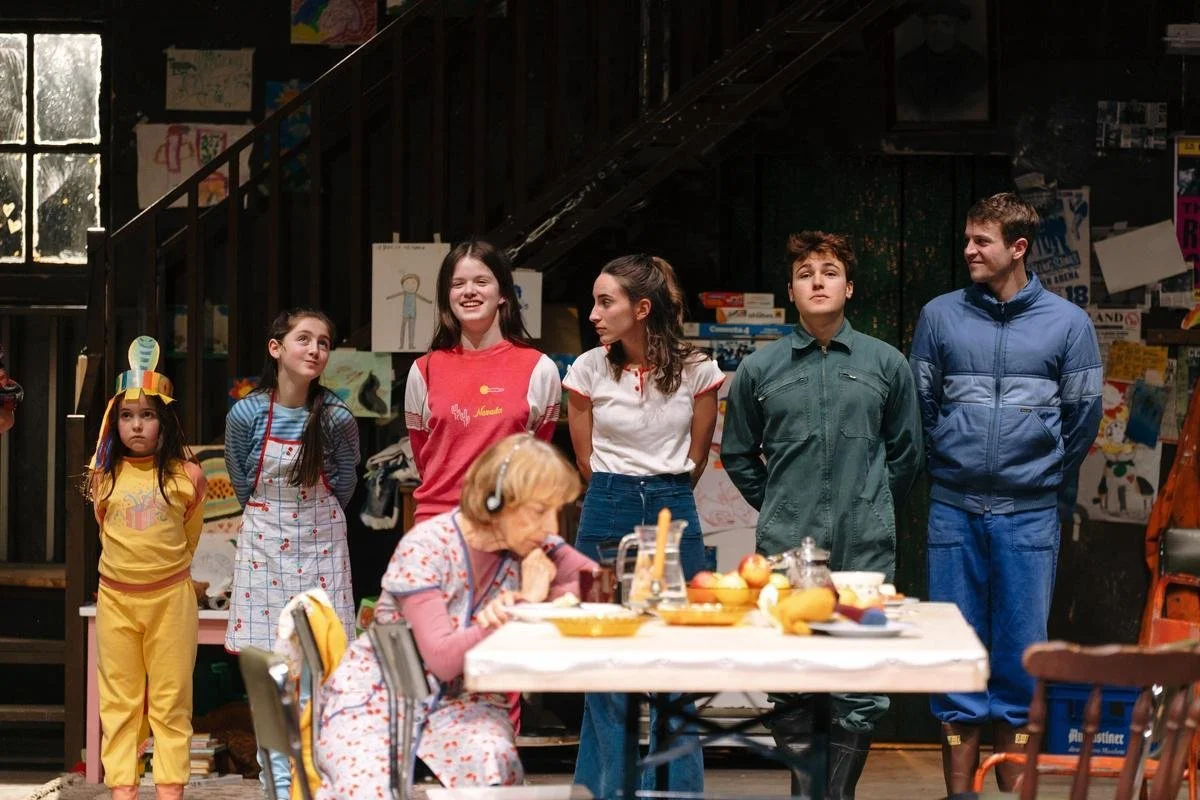Othello, The RSC Review
Photo by Johan Persson
Reviewed by Sarah for Theatre and Tonic
Disclaimer: Gifted tickets in exchange for an honest review
The strength of Tim Carroll’s production of Othello for the RSC is in its simplicity, ensemble and collaboration of creatives. The opening is powerful and dramatic and almost operatic. The new score by James Oxley produces exquisite harmonies which evoke a feeling of overbearing majesty, almost Vatican- like.
The design is simple but elegant, with rich wood flooring, a burnt gold backdrop and strip lighting framing the playing space. There are long fringe-like white or silver tabs that curtain and define the space at times. It serves as a beautiful canvas for the action that allows the craft of the writer, actors and director to simply tell the story.
Caroll knows exactly when to allow the audience's imagination to do the work, by shining light on the text rather than playing out the action. This is particularly powerful when (spoiler alert) Othello strangles Desdemona in Act 5. The scene cuts to a black out and we are left in the dark with only the sound of the struggle; the fading sounds of her body gasping and grasping and banging on the floor is chilling.
In this production, Othello (John Douglas Thompson) is vulnerable and fragile which is a refreshing choice but he lacks the passion and rage that would drive a man to murder. Eventually he plays one note, the victim. Desdemona (Juliet Rylance) is simply and earnestly played but misses opportunities for variation in the text which would have given us a more 3 dimensional character. There was a disconnect with Othello and Desdemona, and as an audience member, I didn’t feel invested or even believe in the relationship.
Actors can be lulled by the poetry and musicality of Shakespeare, rather than investing in the specificity and rich texture of the language. The performances become declamatory or a generalised wash of sentiment. Some actors fell foul of this to varying degrees and others lifted the text off the page with refreshing energy and nuance. There was plenty of charming characterisations and moments of humour from the cast, notably; Anastasia Hille (Emilia), John Paul Connolly (Duke of Venice), Edward Hogg (Cassio), Madeleine Hyland (Bianca), Andrew Price (Senator) and Jethro Skinner as (Roderigo).
Will Keen as Iago is a pressure cooker, fidgeting and ticking with repressed rage. The performance and character are calculated. Keen has the courage to hold stillness and handles the text with a confidence and naturalism that veers into gabbling and underplaying important moments. He cuts a wry, seductive, understated and sinister figure. Therefore he is not quite the virtuous and “exceedingly honest” Iago the other characters describe
The strength of performances lie in the ensemble work. Sometimes Greek chorus-like, they punctuate scenes, sometimes imperceptibly generating a sense of place or tension by their mere presence, movement or audible collective breath. For me, this is what theatre is about, uncluttered story telling, serving the story with the skills of the actors. My only criticism is that I wanted more of it.
At the Royal Shakespeare Theatre until 23 November.
★ ★ ★


